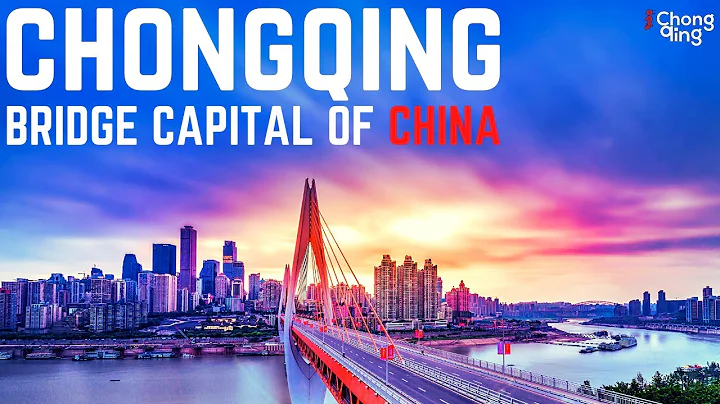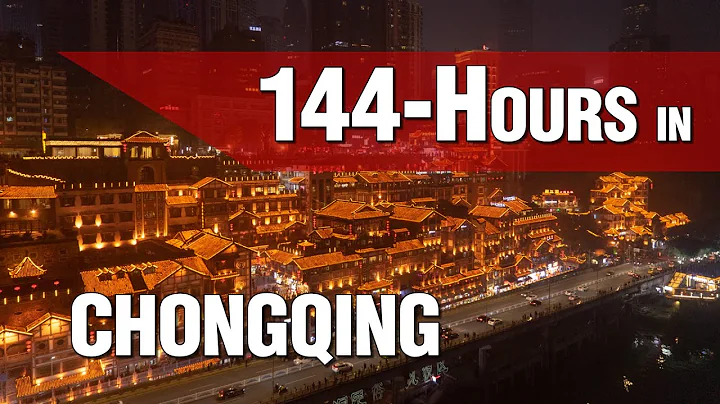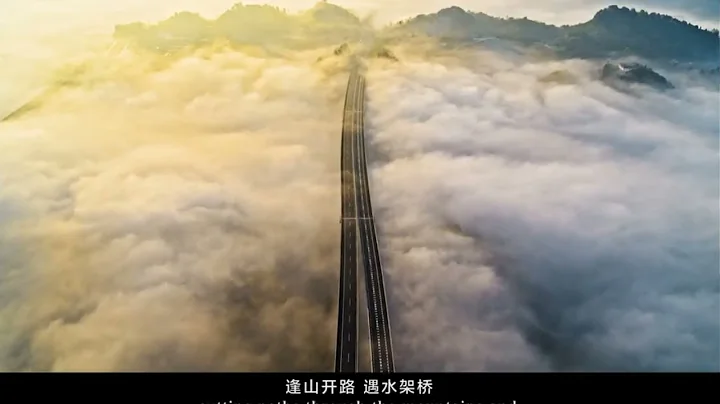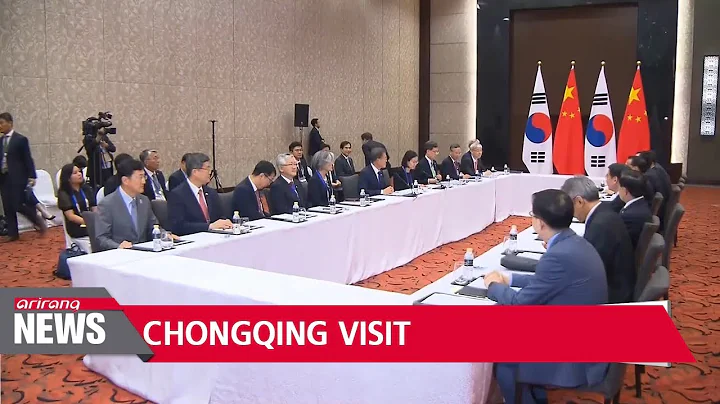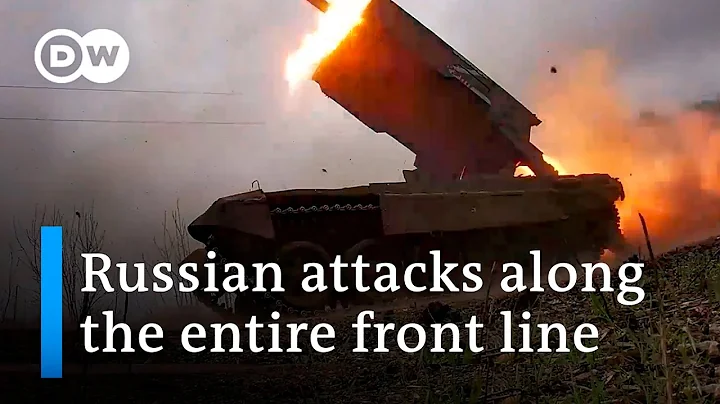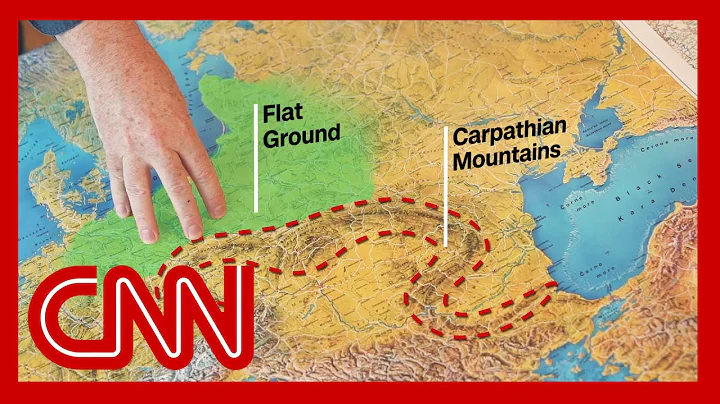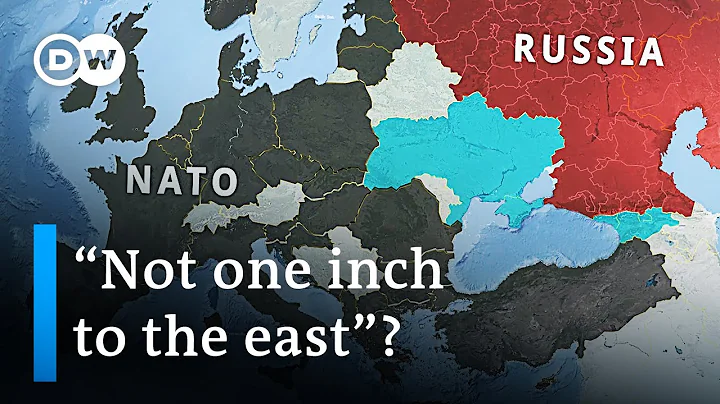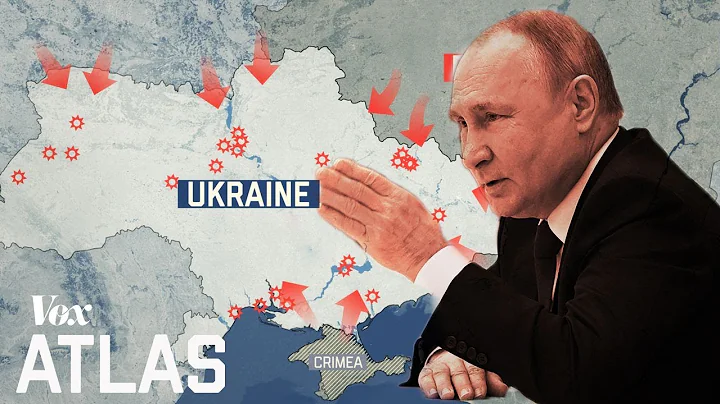In November and December 1944, Zhou Enlai went to Chongqing twice to negotiate with the Kuomintang to warm up the subsequent negotiations between Mao Zedong and Chiang Kai-shek Chongqing. Unexpectedly, during the negotiations, Zhou Enlai, who had always been easy-going and gentle, actually broke out in a fierce quarrel with Chiang Kai-shek.
Angry Zhou Enlai did not talk nonsense to Chiang Kai-shek, and took a plane directly to leave Chongqing and return to Yan'an.
After learning that the negotiation had failed, Mao Zedong publicly criticized Chiang Kai-shek and the Kuomintang's actions at the Seventh Plenary Session of the Sixth Central Committee of the Communist Party of China. Unexpectedly, he reversed the situation with just one sentence, forcing Chiang Kai-shek to send three telegrams in succession inviting Mao Zedong to Chongqing. negotiation.
What exactly did Mao Zedong say, and why did Zhou Enlai quarrel with Chiang Kai-shek? All this goes back to the harsh winter before the Chongqing negotiations...

Picture | Group photo of the Chongqing negotiations, row from left: Hurley, Chiang Kai-shek, Mao Zedong
1. The failure of the warm-up negotiations
In November 1944, Yan'an ushered in the A special guest, he is the personal representative of the President of the United States Hurley . The purpose of Hurley's trip is to mediate the contradiction between the Kuomintang and the Communist Party.
Facing Hurley, the leaders of the Communist Party of China proposed a five-point draft agreement. The most important issue was that they hoped that the Kuomintang government would be reorganized into a coalition government including multiple parties, and that all parties would enjoy equal status.
Hurley thought about it and felt that there was no problem, so he agreed to the Communist Party's request. However, when he excitedly approached Chiang Kai-shek with the agreement, he was severely criticized by Chiang Kai-shek. Chiang Kai-shek's meaning was obvious, and he would never agree. The Communist Party and the Kuomintang are on equal footing, let alone a coalition government.
In Chiang Kai-shek's ambitious plan, there was no word "union" at all. The most he could do was accept Communists as officials in the National Government.
Hurley, who was originally Chiang Kai-shek's lobbyist, immediately turned his back when Chiang Kai-shek disagreed. The Communist Party also understood that trying to get Chiang Kai-shek to accept the coalition government's proposal was tantamount to seeking the skin of a tiger.
On December 20, 1944, Hurley took the initiative to call Zhou Enlai and Mao Zedong, hoping that Zhou Enlai would rush to Chongqing for negotiations. After receiving the telegram, Mao Zedong believed that the Kuomintang government did not have the sincerity to negotiate based on the "Five Point Agreement", so he shied away from Zhou Enlai's troubles. He proposed that Hurley send Bao Ruide, the leader of the US military observation team, to negotiate in Yan'an.
However, Hurley still insisted on expressing his hope that Zhou Enlai would come to Chongqing for negotiations. This time Zhou Enlai responded to Hurley personally, asking the Kuomintang to release political prisoners across the country, withdraw the Kuomintang troops surrounding the Shaanxi-Gansu-Ningxia Border Region, stop all spy activities, and cancel restrictions on people's freedoms. All bans will make it possible to continue negotiations with the Kuomintang.
After receiving the telegram from Zhou Enlai, Hurley sighed deeply. Chiang Kai-shek would not agree to these terms and conditions. There was no need to talk to Chiang Kai-shek at all. At the moment, he could only fight for and persuade the Communist Party. They give in.
Hurley called Yan'an and suggested that he himself take Song Ziwen, Wang Shijie, Zhang Zhizhong and others to visit Yan'an and reach a private agreement before returning to Chongqing to sign the two-party agreement.
This time, Mao Zedong did not indulge Hurley and sharply criticized the Kuomintang for not showing due sincerity in the secret meetings between the two parties over the past eight years. Even if Hurley came in person, it would be of no use.
Subsequently, Mao Zedong also made a little concession. He demanded that representatives of the Kuomintang, the Communist Party, and the Democratic League be allowed to participate in the state conference in Chongqing. The conference should be held in public and all participants should enjoy equal status.
As long as Chiang Kai-shek agrees to this, Zhou Enlai can go to Chongqing to meet him.
On January 20, 1945, Hurley sent a plane to Yan'an. He promised that the Kuomintang would make practical concessions and hoped that Zhou Enlai could fly back to Chongqing for negotiations.
html On the evening of the 24th, Zhou Enlai flew to Chongqing. Before leaving, Mao Zedong gave many instructions, asking Zhou Enlai to fight for the release of patriotic generals such as Zhang Xueliang , Yang Hucheng, Ye Ting, etc. from the Kuomintang, and to convene a party meeting to allow the Kuomintang, the Communist Party, and the Democratic League to participate. , but also to withdraw the troops that surrounded the Shaanxi-Gansu-Ningxia Border Region and so on.Zhou Enlai had just gotten off the plane and before he had time to rest, Wang Shijie and Hurley immediately went to talk to Zhou Enlai. Zhou Enlai firmly stated that the Kuomintang should first hold a meeting of all parties to form a coalition government. Wang Shijie immediately replied: "Mr. Zhou , I think you are stalling for time!”
Hurley later said that it was recommended that the United States send a general to serve as the commander-in-chief of the Chinese Communist Army behind enemy lines, and the Kuomintang and the Communist Party each send one person as the deputy commander-in-chief to show fairness.
Zhou Enlai sneered. He was not a fool. Doesn’t the Communist Party still know what the relationship between the Kuomintang and the United States is? Zhou Enlai rejected Hurley's suggestion on the spot.
On the 28th, Mao Zedong personally gave instructions and called Zhou Enlai: "I firmly disagree with this policy. This is a vicious policy to subordinate the Chinese army, especially our party's army, to foreign countries and turn it into a colonial army."
That's what it is like. Chiang Kai-shek actually supported the "treason" policy. It is unimaginable what kind of abyss China would fall into if such a person led the people?

Picture | Chiang Kai-shek
On January 26, Wang Shijie, Zhang Zhizhong and Zhou Enlai held talks again. This time Zhou Enlai mentioned the "five-point agreement" previously required by the CCP. He accepted the KMT's slight modifications. Wang Shijie fiercely accused Zhou Enlai of being too fussy. Zhou Enlai was noncommittal and did not argue with him.
As the negotiations continued to deepen, the atmosphere on both sides became more and more anxious. Sun Ke, the "leftist" of the Kuomintang, stepped forward and organized a dinner to ease the atmosphere. Wang Shijie, Shao Lizi, Zhou Enlai, Shen Hongru and others were invited. At the banquet
But obviously, until this time, the Kuomintang still has no sincerity in negotiating. Let alone one dinner party, even ten dinner parties will not have any practical results.
html On February 13, Chiang Kai-shek took the initiative to meet with Zhou Enlai. For some reason, Chiang Kai-shek was particularly excited and firmly stated that the Kuomintang could only return power to the people. At best, it could only "return power" to the National Congress, and could not accept the "party meeting" requested by the CCP. The Communist Party must fully accept the opinions put forward by the Kuomintang.Faced with Chiang Kai-shek's aggressiveness, Zhou Enlai also had a very tough attitude. He directly took out Mr. Sun Yat-sen's " Outline of the Founding of the People's Republic of China " to refute Chiang Kai-shek.
Zhou Enlai's removal of Sun Yat-sen was actually a slap in the face of Chiang Kai-shek. Since Chiang Kai-shek launched the "April 12" counter-revolutionary coup, he has embarked on a path that runs counter to Sun Yat-sen. The revolutionary declaration he once promised has also turned into bubbles. This matter has long been It became a knot in Chiang Kai-shek's heart and cannot be mentioned easily.
Chiang Kai-shek raised his voice, cited the example of Sun Yat-sen's march north in 1924, and proposed that the entire set of procedures in the "Outline of the Founding of the People's Republic of China" could be changed.
In this way, Zhou Enlai and Chiang Kai-shek had a fierce quarrel. The two continued to argue until after midnight, before Zhou Enlai slammed the door and left in anger.
Looking at Zhou Enlai's leaving figure, Chiang Kai-shek sighed heavily. During the Huangpu period, he and Zhou Enlai were like-minded friends, but now they are at war with each other.
Early the next morning, Zhou Enlai packed his luggage and prepared to take a plane back to Yan'an. As a result, the plane broke down and he was forced to stay in Chongqing for a day.
Knowing that Zhou Enlai had not left, Wang Shijie, Huang Yanpei quickly found Zhou Enlai and said that there was actually no big difference between the opinions of the CCP and the Communist Party, and that Chiang Kai-shek was not without sincerity in negotiating.
Zhou Enlai already knew what Chiang Kai-shek meant. Even if Wang Shijie said this, it still did not stop Zhou En from going back and forth to Yan'an.
After returning to Yan'an, Zhou Enlai truthfully told Mao Zedong the details of the entire negotiation. Mao Zedong slammed the table angrily and shouted: "Chiang Kai-shek has no sincerity at all. The Kuomintang still insists on one-party dictatorship, opposes the coalition government, and attempts to annex The Eighth Route Army and the New Fourth Army, this time the negotiations still did not reach any agreement as before! "
In order to give Chiang Kai-shek a warning, at the Seventh Plenary Session of the Sixth Central Committee of the Communist Party of China on the 18th, Mao Zedong publicly declared: "Chiang Kai-shek and Hurley both asked us to be cheap. Or go into the water at no cost, this is simply a waste of money. We resisted, and now they are trying to trick our troops, and we also resisted!"
Unexpectedly, this sentence instantly reversed the situation in the negotiations between the two parties, and Chiang Kai-shek saw himself. All his thoughts were exposed, and he began to panic. He didn't want to be the sinner, and he didn't want to be the first to start a civil war. But Mao Zedong openly revealed his conspiracy, which really made Chiang Kai-shek a little bit unable to sit still.

Picture | Mao Zedong
2. Three consecutive telegrams were sent to invite Mao Zedong
Just as the Anti-Japanese War was about to win, with the strong support of the United States, the Kuomintang began to unscrupulously steal the fruits of the Anti-Japanese victory in an attempt to establish dictatorship across the country.
Since January 1945, the Kuomintang has not stopped attacking the Communist army. Many democrats are worried about the outbreak of a large-scale civil war between the two sides. They have called Chiang Kai-shek and asked him to cherish the hard-won peace, wake up in time, and give up one-party dictatorship. , convene a party meeting.
Huang Yanpei, Zhang Naiqi, Shi Fuliang and other democrats put pressure on Chiang Kai-shek and put forward the slogan of "democratic unification and peaceful nation building".
To be honest, if it were not for the pressure from all walks of life, Chiang Kai-shek, who was backed by the Americans, would really not want to share the fruits of victory with the Communist Party. The United States wanted to establish a China that was independent on the surface but actually obeyed the United States in order to contain the Soviet Union. the goal of.
Once Chiang Kai-shek comes to power, China is bound to once again become a puppet country actually controlled by the United States. It has worked hard for decades for revolution in order for the people to be the masters of their own country. Based on this alone, the people cannot agree to Chiang Kai-shek's sole control of power.
Under various complex conditions, Chiang Kai-shek came up with a sinister plan that would not only allow him to provoke a civil war, but also put the blame on the Communist Party, that is, to invite Mao Zedong to Chongqing for negotiations.
Under the situation of acute conflict between the Kuomintang and the Communist Party, once Mao Zedong refused to come to Chongqing for negotiations, Chiang Kai-shek would have reason to shift the responsibility to the Communist Party, thus launching a civil war. Even if Mao Zedong came, he would randomly give the Communist Party several positions and force Mao Zedong to hand over the liberated areas. and the army, he still dominates the world alone.
This seemingly seamless plan was completely shattered by Mao Zedong and Zhou Enlai in the near future!
In order to show his "sincerity in negotiations", Chiang Kai-shek sent three telegrams to Yan'an, inviting Mao Zedong, Zhou Enlai and others to come to Chongqing to "discuss state affairs together."
Zhou Enlai had already tested the other party's bottom line. Knowing that Chiang Kai-shek had no sincerity in negotiating, he was naturally unwilling to attend his Hongmen Banquet and suggested that Mao Zedong not go to Chongqing to meet Chiang Kai-shek.
Mao Zedong had a different view on this matter. He believed: "We still have to participate in this form of coalition government. I went to Chongqing to 'wash face' of Chiang Kai-shek, not to 'behead' him. Sometimes it is necessary to take detours." It can make our party more mature and the Chinese people more aware."
Having said that, Mao Zedong still prepared for the worst before going to Chongqing. After all, people like Chiang Kai-shek are uncertain, and even if they are 100% sure, there is no chance. Fa believed what he said.
Mao Zedong said that if something happened, Liu Shaoqi would take his place, and he would add Chen Yun and Peng Zhen as alternate secretaries to fill the vacancies between himself and Zhou Enlai.
"I am going to be a prisoner... If it is under house arrest, there is no need to be afraid. Now in form it is China itself that has to solve the problem. In fact, it is the Three Kingdoms who are interfering. None of the three countries are willing to have a civil war in China, and international pressure is not conducive to Chiang Kai-shek's dictatorship. You can go to Chongqing, but you must go!”

Picture | Mao Zedong, Zhou Enlai, and Hurley together
html On August 28, after making all preparations, Mao Zedong and Zhou Enlai, accompanied by Hurley and Zhang Zhizhong, headed for Yan’an Southeast Gate Airport.Before closing the cabin door, Mao Zedong stood at the hatch of the plane, took off the dark gray helmet on his head with one hand, and waved it vigorously. Seeing this, the people seeing him off waved their hands to say goodbye to Chairman Mao.
This kind of helmet-style hat was actually rare at the time. Mao Zedong rarely wore hats. However, he wore this hat specially when he went to Chongqing for negotiations. Naturally, it had special political significance.
This Chongqing negotiation will surely attract the attention of the whole world. Before this, the Kuomintang has been vilifying the Communist Party internationally. In order to correct our image, Zhou Enlai specially dressed Mao Zedong.
Wearing a brand new white silk shirt and a gray-blue Mao suit on his upper body, paired with a pair of shiny black leather shoes, and a Russian-style hat on his head, the size of the hat turned out to be a little too small, so Zhou Enlai gave his helmet-style hat as a gift Chairman Mao.
Helmet-style hat, also known as "Napoleon hat", was once Sun Yat-sen's favorite. The chairman held the helmet-style hat in his hand and waved it slightly, showing its power to turn things around.
html On the evening of 28th, the plane successfully arrived at Chongqing Jiulongpo Airport. Chinese and foreign reporters who had been waiting for a long time immediately swarmed up and clicked the shutter on Mao Zedong and Zhou Enlai.Facing the huge crowd in front of him, Mao Zedong did not show any stage fright. He took off his hat and waved gently to the people. Reporter Fang Ji recalled this unforgettable scene and said with emotion: "Chairman Mao wears a sun helmet on his head. The scene of Mao Zedong waving to people with his helmet left a deep impression on everyone. "

Picture | Mao Zedong waving his helmet
3. The heroic trip to Chongqing
From this day on, the Kuomintang and the Communist Party began a 43-day negotiation.
On the third day after Mao Zedong arrived in Chongqing, he met with Liu Yazi, Shen Hongru and other well-known democrats. Liu Yazi also wrote a poem to praise Mao Zedong: "The great bravery and sincerity are capable, and the people everywhere are still fighting. The rain is raining on the people. When a new country is built, Yun Lei and Qing Shi are in the same boat."
Liu Yazi firmly said that based on Mao Zedong's great personality, there is no one in this world who cannot be influenced by him, and there is no problem that cannot be solved by him.
With Zhou Enlai's warm-up, Mao Zedong's negotiations in Chongqing obviously went much smoother. However, as before, Chiang Kai-shek still had no sincerity in negotiating. As the negotiations between the two parties deepened, there were more and more conflicts.
In short, Chiang Kai-shek firmly stated that he would adhere to his dictatorship. The Communist Party can exist, but it must obey the arrangements of the Kuomintang.
html On September 3, after several days of exchange of views, the Communist Party submitted a total of 11 negotiating points. Among them, the most difficult issue to achieve unity is the political power and the army.The Communist Party hopes that Communists can serve as provincial chairmen of the five liberated areas including Shanxi and Shandong, and vice presidents of six provinces including Guangdong and Hubei. On military issues, the Communist Party hopes to reorganize the People's Army into 16 armies and 48 divisions. The Kuomintang But the Communist Party could only be allowed to retain 12 divisions. The expectations of the two sides were completely different.
When Mao Zedong exposed Chiang Kai-shek's conspiracy in one sentence, he got Chiang Kai-shek's active invitation, but he failed to get Chiang Kai-shek's sincerity in negotiations. Whether it was Zhou Enlai's warm-up negotiations or Mao Zedong's formal negotiations, the Kuomintang government was almost perfunctory. .
The "coalition government" mentioned by Zhou Enlai before was also deliberately hidden by the Communist Party in this formal negotiation. In fact, it indirectly recognized the dominant position of the Kuomintang. However, Chiang Kai-shek still felt that the Communist Party's demands were too much.
As a result, the negotiations were deadlocked from the start.

Picture | Mao Zedong and Liu Yazi took a photo
There was no progress at the negotiation table. Mao Zedong could only win more chips for himself through other aspects. In addition to constantly putting pressure on Chiang Kai-shek on the battlefield, Mao Zedong also united with many democrats to influence public opinion in society. put pressure on Chiang Kai-shek.
Mao Zedong said to Chen Lifu with righteous indignation: "When we went up to the mountains to fight guerrillas, we were forced out by the Kuomintang to suppress the Communists. We were forced to go to Liangshan. At least Sun Wukong had a Bimawen, but Chiang Kai-shek didn't even give him a Bimawen. If we do, we have to carry our guns and go up the mountain."
Mao Zedong's words were humorous and sharp, which made Chen Lifu feel ashamed.
After several days of hard work, public opinion gradually tilted towards the side of the Communist Party. Mao Zedong's wisdom and humor, and Zhou Enlai's modesty and easy-goingness, have gained a lot of favorability for the Communist Party in the international community.
After Chiang Kai-shek saw this, he was so angry that he kept scolding his mother at home. When Hurley found out, he was also a little anxious.
html On September 15, the Kuomintang and the Communist Party had held four formal talks, but there was still no progress. He had received an order to return to China to report on his work. As a result, he achieved nothing in more than a year, and the contradiction between the Kuomintang and the Communist Party was not resolved.Hurley urgently needs an agreement, even if it is peace on paper, he can temporarily protect himself. The day before
was about to return to China, Hurley specially hosted a banquet for Mao Zedong, Zhou Enlai, Chiang Kai-shek, and Zhang Zhizhong, the leaders of the two parties. Hurley repeatedly emphasized that an announcement must be issued as soon as possible and a clear decision must be made on the military issue. .
But the biggest problem between the Kuomintang and the Communist Party at that time was the military. In order to solve the problem as soon as possible, Hurley proposed the idea of shrinking the Kuomintang and Communist armies proportionally. Zhou Enlai thought about it again and again, and nodded in agreement.
Zhou Enlai agreed to make concessions, and Hurley also postponed his return to China in order to wait for the outcome of the peace talks. However, the unyielding Chiang Kai-shek was still unwilling to make concessions. At most, the Communist Party could increase its number from 12 divisions to 16 divisions.
Seeing that the Kuomintang was so insincere and so arrogant, Wang Ruofei was so angry that he slammed the table: "In that case, the central government will wipe out all our party's troops!"
As soon as these words came out, the negotiation instantly reached a deadlock, and Zhou Enlai stood helplessly. He came out to preside over the overall situation: "Today our party has recognized Mr. Chiang's leadership and also recognized the Kuomintang as the largest party in China. However, the Kuomintang cannot regard itself as a leader, but wants to be a ruler."
That night, Hurley found After a hard fight with Chiang Kai-shek, they wanted to kneel down to Chiang Kai-shek, and then they forced Chiang Kai-shek to agree to the Communist Party's increase in the number of troops to 20 divisions.
After getting this result, Hurley went to Mao Zedong's bedroom and tried to force Mao Zedong to accept Chiang Kai-shek's "ultimatum." However, no matter how eloquent and eloquent he was, Mao Zedong refused. concession.
In desperation, Hurley could only return to China with unfinished tasks, and never returned to China again.

Picture | Hurley and Mao Zedong
After Hurley left, Chiang Kai-shek, who had lost his patience in negotiations, became murderous. Perhaps he smelled the smell of gunpowder in the air. Zhou Enlai took the initiative to propose that since the negotiations had been fruitless, it would be better to let Mao Zedong return to Yan'an first. .
The Kuomintang had no reason to block it and could only agree to Mao Zedong's departure.
I am afraid that letting Mao Zedong leave at this time has become the decision that Chiang Kai-shek regretted most in his life!
Before leaving, the peace negotiators from both sides compiled a " Double Ten Agreement " and published it publicly. The smell of gunpowder on the negotiating table was hardly reflected in the agreement. The Kuomintang also expressed optimism that the two sides would reach an agreement in the near future.
Unfortunately, this "near future" will never come. On the third day after the "Double Ten Agreement" was released, Chiang Kai-shek issued a secret order to suppress the Communists, warning soldiers at all levels: If the Communist bandits are not wiped out, all the efforts made in the War of Resistance will be in vain and China will be rejuvenated. Hopeless!
On June 26, 1946, Chiang Kai-shek openly tore up the "Double Ten Agreement" and ignited the flames of civil war. No one expected that the army of 4 million American equipment he once thought was powerful would be defeated by the people's army with "millet plus rifles". There was no way to fight back.

Picture | "Double Ten Agreement"
Starting from November 1944, Zhou Enlai began to warm up and prepare for the Chongqing negotiations. It was not until October 11, 1945, when Mao Zedong returned to Yan'an from Chongqing that the nearly one-year Chongqing negotiations failed. Bring peace to China.
Mao Zedong's words came true. From the beginning, Chiang Kai-shek had "no sincerity" in this negotiation. Both Chiang Kai-shek and Hurley asked us to enter the water cheaply or at no cost. This was simply a waste of money. We resisted, and now They wanted to trap our troops again, but we resisted!
In addition to resolutely resisting such a dictator, we must also resolutely oppose it. From the moment Chiang Kai-shek chose to betray the people's camp, he was destined to fail!
. END .
Text: Jinxiu
Editing and typesetting: Xiaoyuan






